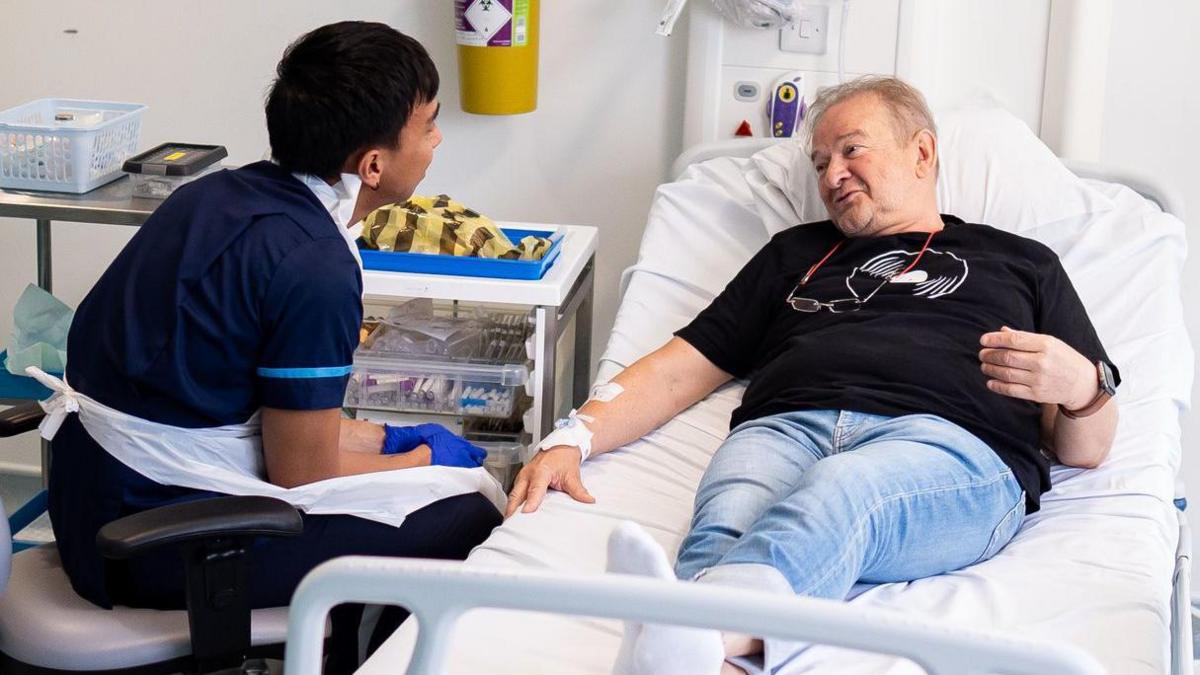UK 'increasingly challenging' - drug company boss
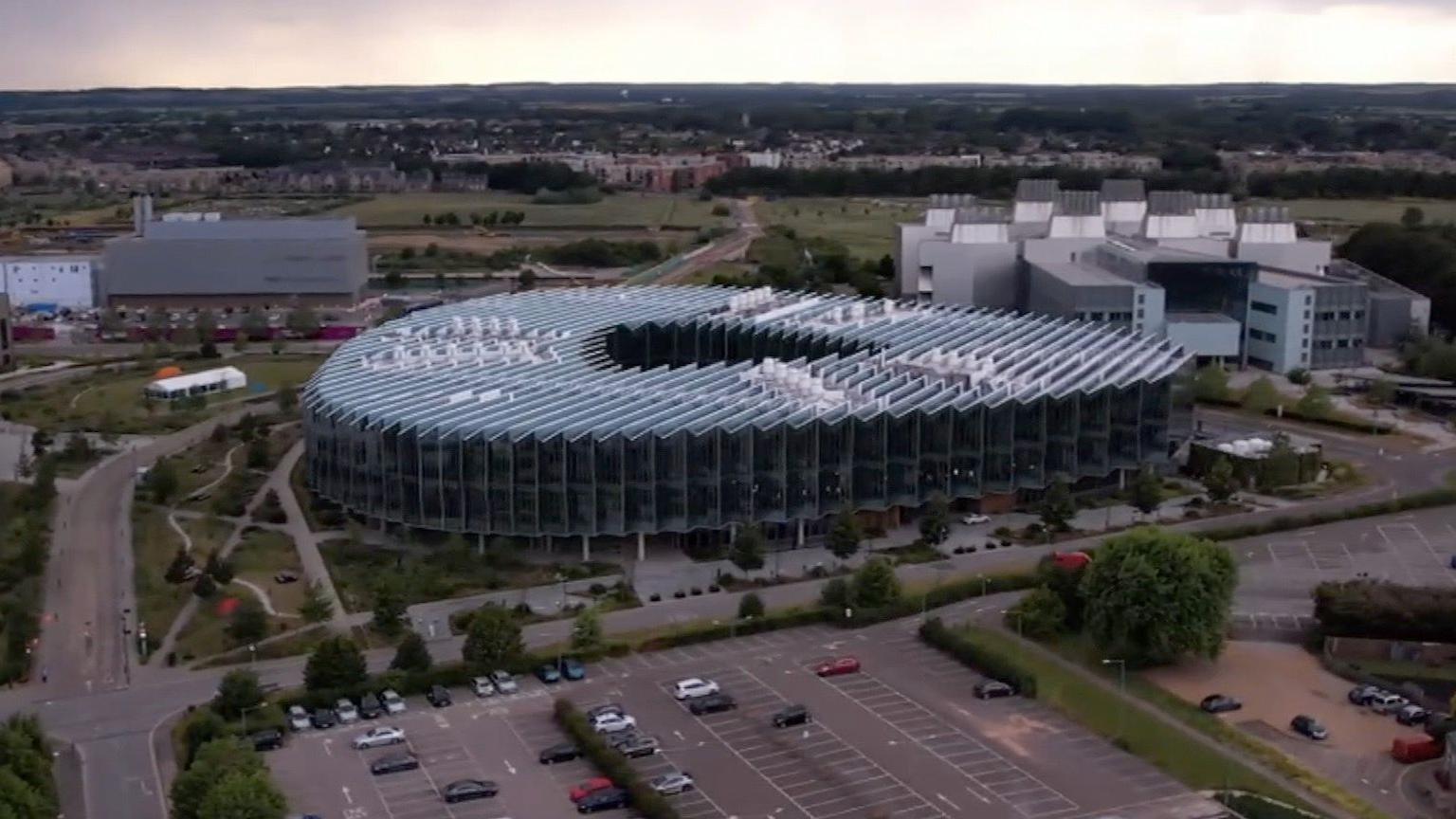
AstraZeneca's global headquarters are at its "discovery centre" on Cambridge's biomedical campus
- Published
The UK is an "increasingly challenging" country in which to develop drugs and get them to patients, according to a pharmaceuticals boss.
Tom Keith-Roach, UK president of AstraZeneca, gave evidence to MPs days after the pharmaceutical giant confirmed a planned £200m investment in Cambridge was "paused".
Cambridgeshire and Peterborough's Conservative mayor urged ministers to "solve" a "drug price row" to encourage economic growth.
The government said it hoped to make the UK a "destination of choice" for life sciences but the science minister admitted it should spend more on medicines.
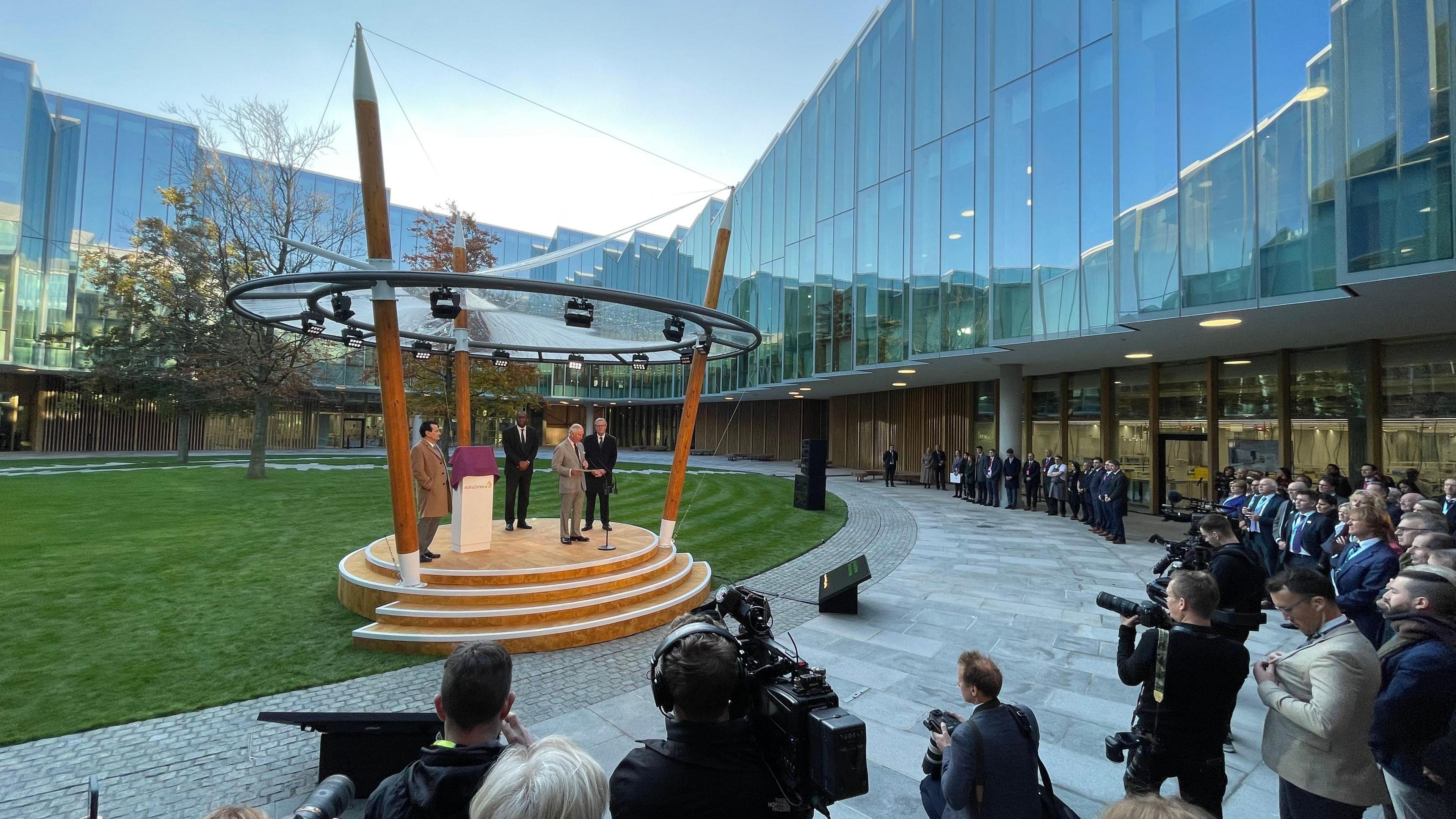
The building was officially opened by the then Prince Charles in 2022
MPs on the Science, Innovation and Technology select committee called an emergency evidence session after news of AstraZeneca's investment pause emerged.
The company had planned to expand its "discovery centre" headquarters, based on Cambridge's biomedical campus, creating about 1,000 jobs.
It followed US pharmaceutical giant Merck scrapping a £1bn UK expansion days earlier, blaming a lack of government investment.
Mr Keith-Roach said AstraZeneca was "extremely proud to be the leading life sciences company and leading life sciences investor in the UK" and that it was "deeply rooted in Cambridge", as well as at sites in Macclesfield, Cheshire, and Liverpool.
He said the company had recently lost the UK patent for its "largest product in the UK", diabetes drug Forxiga.
That, he continued, had "forced us to review our UK footprint".
He also said that "building successful, high-growth, innovation-led pharmaceutical companies" involved "taking huge risk in drug development".
He added that this required "health systems and governments which value that innovation" and allowed its "business model globally to be sustainable".
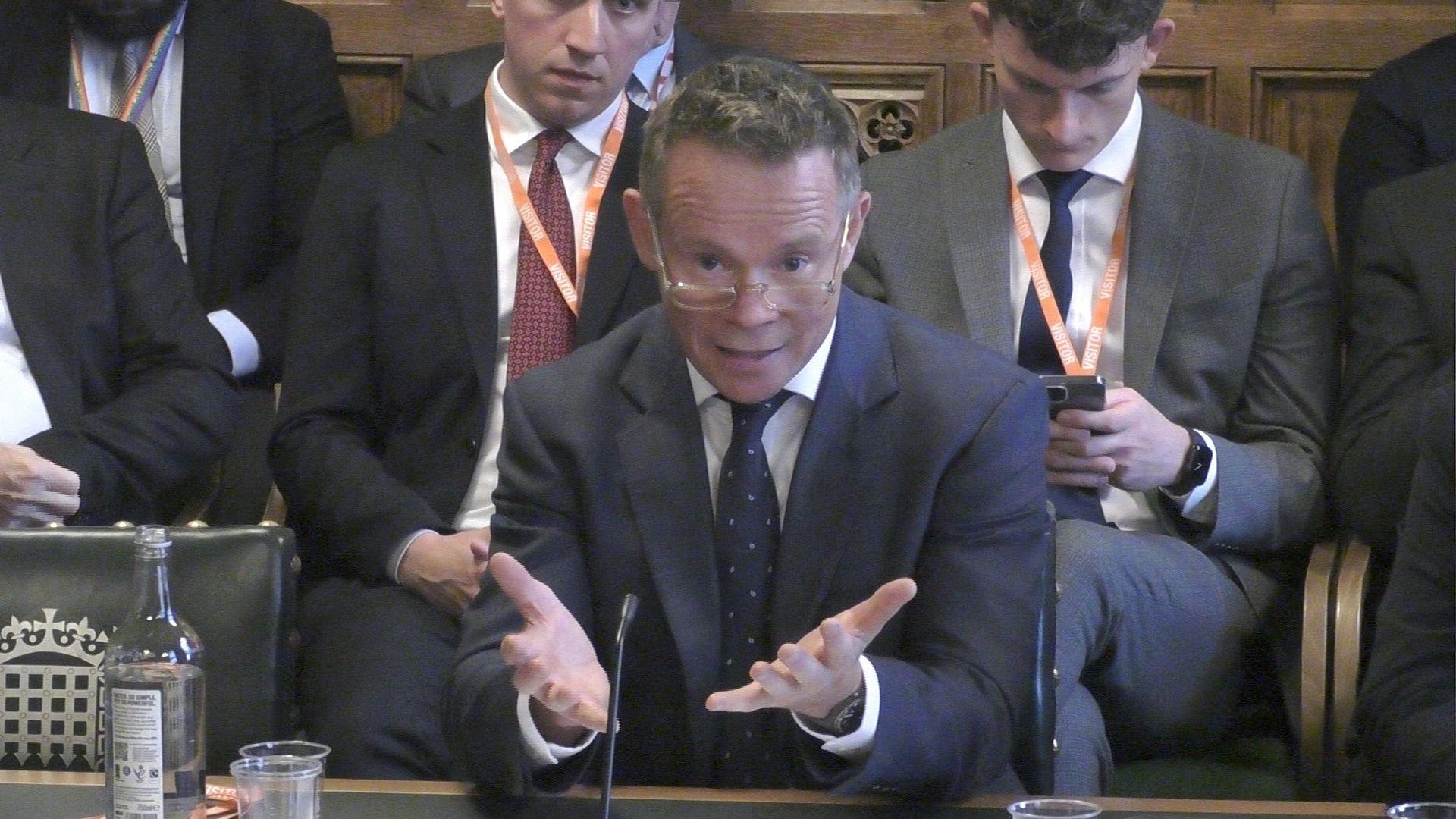
Tom Keith-Roach gave evidence to the Science, Innovation and Technology select committee just days after news of AstraZeneca's investment pause was leaked
Mr Keith-Roach continued: "The UK is an increasingly challenging place actually to bring forward that innovation, to get through the front door of [the National Institute for Health and Care Excellence], into the NHS, [and] to bring forward innovation to patients."
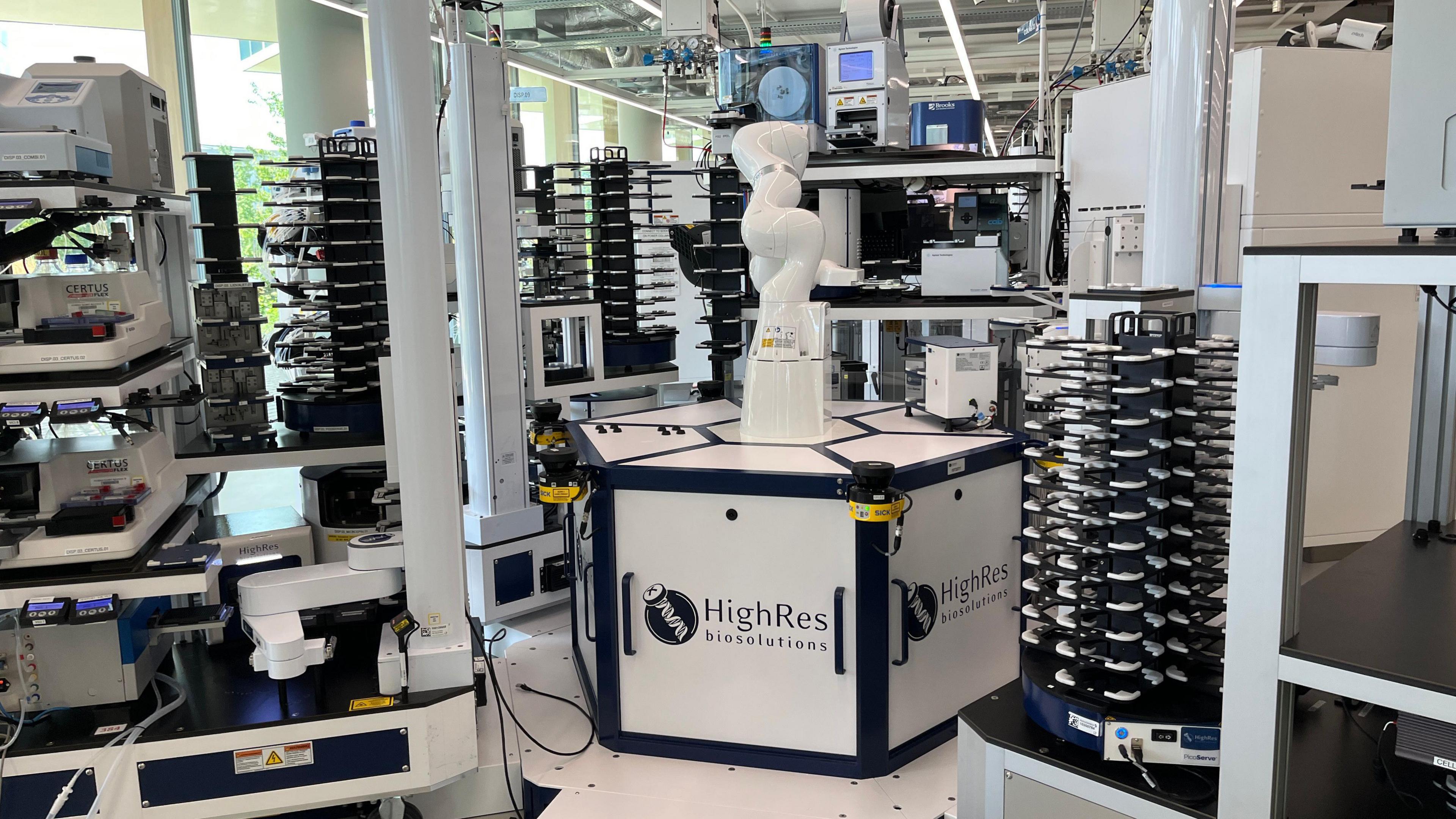
About 2,300 researchers and scientists use the latest technology to try to create new medicines at AstraZeneca's Cambridge discovery centre
In August, talks over the cost of medicines in the UK between the Department for Health and pharmaceutical firms broke down.
Over the last 10 years, UK spending on medicines fell from 15% of the NHS budget to 9%, while the rest of the developed world spends between 14% and 20%.
Science minister Lord Patrick Vallance told the committee the NHS should spend more on medicines but the "reason we need to reverse" the decline was "not just price".
"I don't think this is just about saying 'we're going to pay you more'," he added.
The government needed to ensure "that we get rapid uptake of the new medicines" and "equitable access right across the UK", as well as look at a "price issue for some medicines".
Lord Vallance continued: "I think it would be a big mistake to say 'we just need to put up prices' – it's more than that.
"The ultimate beneficiary of this needs to be patients on the one hand and the economy on the other."
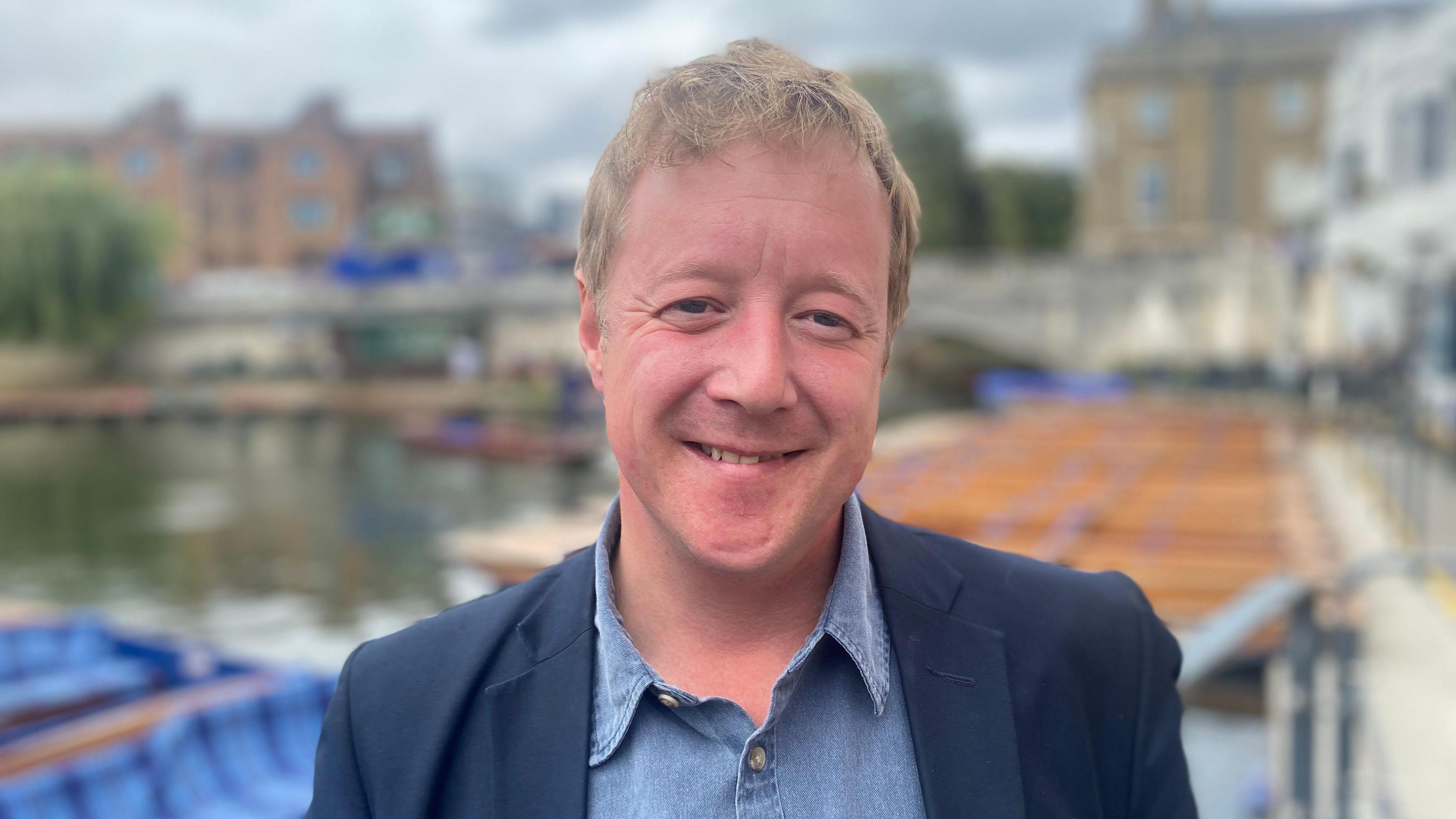
Cambridgeshire and Peterborough's mayor Paul Bristow urged the government to end the "drug price row"
Conservative Paul Bristow, Cambridgeshire and Peterborough's directly elected mayor, said the investment "pause" by AstraZeneca was "not welcome", but that the "fundamentals of Cambridge are still strong".
"What we need is action from the government to try and unlock investment in Cambridge.
"We need intervention in our life sciences industry. We need to solve that drug price row and once we do, the UK life science industry can continue to thrive and grow."
Ministers were said to be "disappointed" by AstraZeneca's decision but Mr Keith-Roach said the company was now involved "in a highly constructive conversation with government at the highest level".
A government spokesperson said: "The changes we are making through the life sciences sector plan will help make the UK the destination of choice for life sciences companies to invest – supporting our health, wealth, and resilience."
It is investing £600m in the Health Data Research Service, alongside Wellcome, and has committed up to £520m to the Life Sciences Innovative Manufacturing Fund.
The spokesperson added that ministers remained "confident in life sciences as a driver of both economic growth and better health outcomes, and our door remains open to future engagement" with the pharmaceutical industry.
Get in touch
Do you have a story suggestion for Cambridgeshire?
Follow Cambridgeshire news on BBC Sounds, Facebook, external, Instagram, external and X, external.
Related topics
More related stories
- Published12 September

- Published11 September
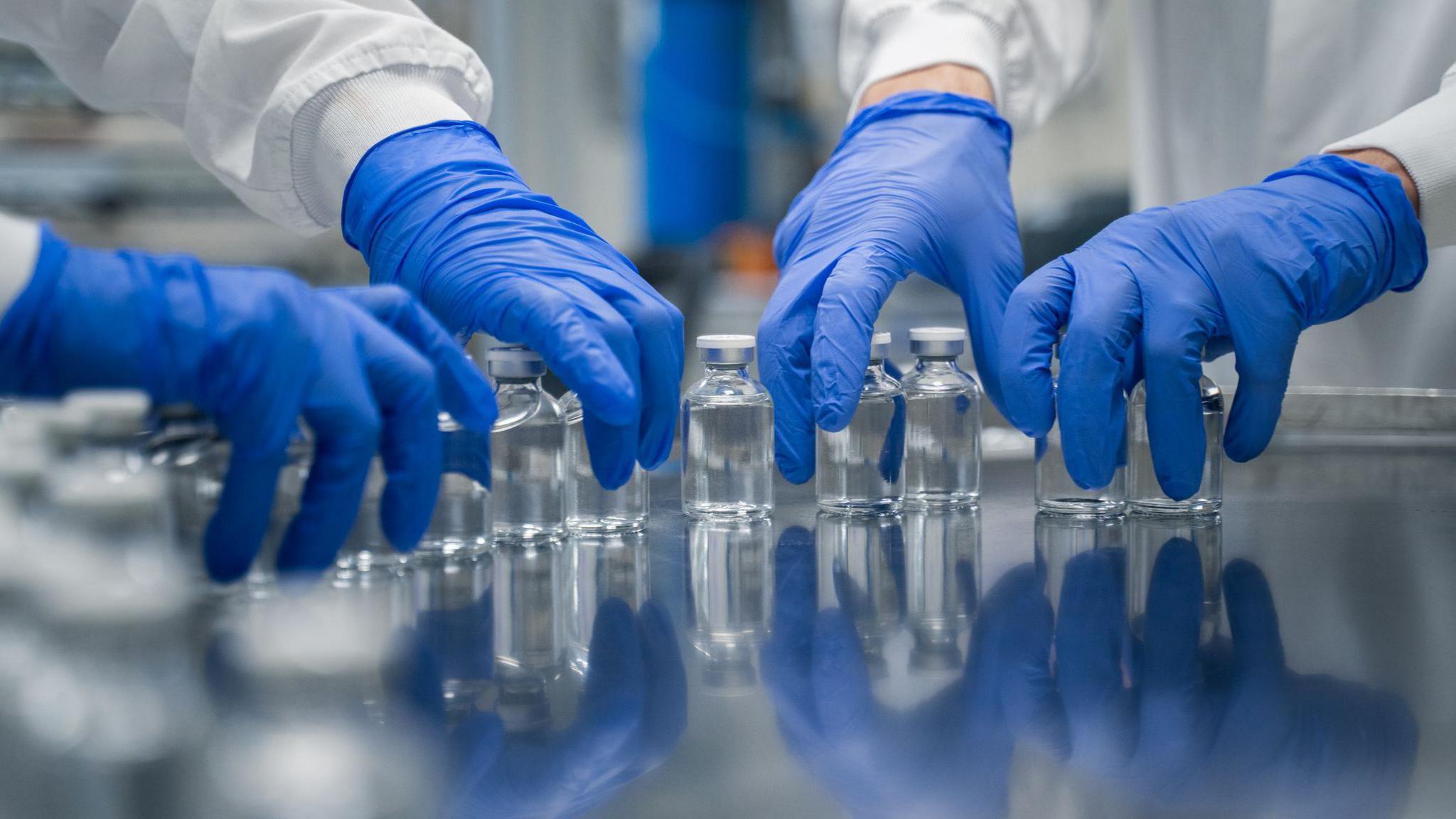
- Published27 August
